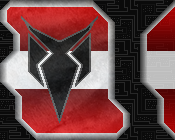






 Posted by msmash from Slashdot
Posted by msmash from Slashdot
From the moving-forward department: Anthropic launched Claude Opus 4 and Claude Sonnet 4 today, positioning Opus 4 as the world's leading coding model with 72.5% performance on SWE-bench and 43.2% on Terminal-bench. Both models feature hybrid architecture supporting near-instant responses and extended thinking modes for complex reasoning tasks.
The models introduce parallel tool execution and memory capabilities that allow Claude to extract and save key facts when given local file access. Claude Code, previously in research preview, is now generally available with new VS Code and JetBrains integrations that display edits directly in developers' files. GitHub integration enables Claude to respond to pull request feedback and fix CI errors through a new beta SDK.
Pricing remains consistent with previous generations at $15/$75 per million tokens for Opus 4 and $3/$15 for Sonnet 4. Both models are available through Claude's web interface, the Anthropic API, Amazon Bedrock, and Google Cloud's Vertex AI. Extended thinking capabilities are included in Pro, Max, Team, and Enterprise plans, with Sonnet 4 also available to free users.
The startup, which counts Amazon and Google among its investors, said Claude Opus 4 could autonomously work for nearly a full corporate workday -- seven hours. CNBC adds: "I do a lot of writing with Claude, and I think prior to Opus 4 and Sonnet 4, I was mostly using the models as a thinking partner, but still doing most of the writing myself," Mike Krieger, Anthropic's chief product officer, said in an interview. "And they've crossed this threshold where now most of my writing is actually ... Opus mostly, and it now is unrecognizable from my writing."
< This article continues on their website >







 Posted by msmash from Slashdot
Posted by msmash from Slashdot
From the flywheel-effect department: Google's expansion of Gemini's data access through "personal context" represents a fundamental shift in how AI assistants operate. Unlike competitors that start from scratch with each new user, Gemini can immediately tap into years of accumulated user data across Google's ecosystem. The Verge adds: Google first started letting users opt in to its "Gemini with personalization" feature earlier this year, which lets the AI model tap into your search history "to provide responses that are uniquely insightful and directly address your needs." But now, Google is taking things a step further by unlocking access to even more of your information -- all in the name of providing you with more personalized, AI-generated responses.
During Google I/O on Tuesday, Google introduced something called "personal context," which will allow Gemini models to pull relevant information from across Google's apps, as long as it has your permission. One way Google is doing this is through Gmail's personalized smart replies -- the AI-generated messages that you can use to quickly reply to emails.
To make these AI responses sound "authentically like you," Gemini will pore over your previous emails and even your Google Drive files to craft a reply tailored to your conversation. The response will even incorporate your tone, the greeting you use the most, and even "favorite word choices," according to Google.







 Posted by msmash from Slashdot
Posted by msmash from Slashdot
From the fighting-back department: BrianFagioli writes: Signal has officially had enough, folks. You see, the privacy-first messaging app is going on the offensive, declaring war on Microsoft's invasive Recall feature by enabling a new "Screen security" setting by default on Windows 11. This move is designed to block Microsoft's AI-powered screenshot tool from capturing your private chats.
If you aren't aware, Recall was first unveiled a year ago as part of Microsoft's Copilot+ PC push. The feature quietly took screenshots of everything happening on your computer, every few seconds, storing them in a searchable timeline. Microsoft claimed it would help users "remember" what they've done. Critics called it creepy. Security experts called it dangerous. The backlash was so fierce that Microsoft pulled the feature before launch.
But now, in a move nobody asked for, Recall is sadly back. And thankfully, Signal isn't waiting around this time. The team has activated a Windows 11-specific DRM flag that completely blacks out Signal's chat window when a screenshot is attempted. If you've ever tried to screen grab a streaming movie, you'll know the result: nothing but black.







 Posted by BeauHD from Slashdot
Posted by BeauHD from Slashdot
From the terminal-decline department: An anonymous reader quotes a report from The Guardian: "Do not use semicolons," wrote Kurt Vonnegut, who averaged fewer than 30 a novel (about one every 10 pages). "All they do is show you've been to college." A study suggests UK authors are taking Vonnegut's advice to heart; the semicolon seems to be in terminal decline, with its usage in English books plummeting by almost half in two decades -- from one appearing in every 205 words in 2000 to one use in every 390 words today. Further research by Lisa McLendon, author of The Perfect English Grammar Workbook, found 67% of British students never or rarely use the semicolon. Just 11% of respondents described themselves as frequent users.
Linguistic experts at the language learning software Babbel, which commissioned the original research, were so struck by their findings that they asked McLendon to give the 500,000-strong London Student Network a 10-question multiple-choice quiz on the semicolon. She found more than half of respondents did not know or understand how to use it. As defined by the Oxford Dictionary of English, the semicolon is "a punctuation mark indicating a pause, typically between two main clauses, that is more pronounced than that indicated by a comma." It is commonly used to link together two independent but related clauses, and is particularly useful for juxtaposition or replacing confusing extra commas in lists where commas already exist -- or where a comma would create a splice. The Guardian has a semicolon quiz at the end of the article where you can test your semicolon knowledge.



 Blue Prince is the second highest-reviewed game of 2025 and now players on PlayStation 5 can finally plumb the depths of its deepest secrets without worrying about a gnarly game-breaking bug corrupting their save files. After weeks of tragically ensnaring some of the puzzle adventure’s biggest fans, a new patch fixes…
Blue Prince is the second highest-reviewed game of 2025 and now players on PlayStation 5 can finally plumb the depths of its deepest secrets without worrying about a gnarly game-breaking bug corrupting their save files. After weeks of tragically ensnaring some of the puzzle adventure’s biggest fans, a new patch fixes…
 Sega and Games Workshop announced that the original Space Marine game, first released on PS3, Xbox 360, and PC over a decade ago, is getting a fancy remaster with improved visuals and controls. And you won’t have to wait long as it launches on June 10 on Xbox Series X/S, and PC. You might notice a platform is missing.
Sega and Games Workshop announced that the original Space Marine game, first released on PS3, Xbox 360, and PC over a decade ago, is getting a fancy remaster with improved visuals and controls. And you won’t have to wait long as it launches on June 10 on Xbox Series X/S, and PC. You might notice a platform is missing.
 You might not know it based on my scathing recaps of The Last of Us’ second season, but I love this series. I love the moral conundrums it presents, the violent grief it depicts, and the games’ excellent writing that poignantly brings all of those complicated emotions to the surface. What I don’t like is listening to…
You might not know it based on my scathing recaps of The Last of Us’ second season, but I love this series. I love the moral conundrums it presents, the violent grief it depicts, and the games’ excellent writing that poignantly brings all of those complicated emotions to the surface. What I don’t like is listening to…
 Marvel Rivals’ next big seasonal update is nearly here, and with it, some major balance changes are coming as well as a new map. And for fans of evil robots, the upcoming 2.5 season will add Ultron to the free-to-play shooter’s ever-growing roster.
Marvel Rivals’ next big seasonal update is nearly here, and with it, some major balance changes are coming as well as a new map. And for fans of evil robots, the upcoming 2.5 season will add Ultron to the free-to-play shooter’s ever-growing roster.
 RPG fans love their Collector’s Editions, but few guessed just how big or good Clair Obscur: Expedition 33 would turn out to be, including its own developers. The result was that a very limited set of physical releases, including Collector’s Editions exclusive to certain retailers, immediately vanished from store…
RPG fans love their Collector’s Editions, but few guessed just how big or good Clair Obscur: Expedition 33 would turn out to be, including its own developers. The result was that a very limited set of physical releases, including Collector’s Editions exclusive to certain retailers, immediately vanished from store…

 Way back in 2019, Blizzard confirmed that Soldier: 76, Overwatch’s grumpy grandpa, is a member of the queer community. The titular organization’s ex-commander, whose real name is Jack Morrison, is gay and was involved with a man named Vincent many years before the events of the game. This was revealed in a short story…
Way back in 2019, Blizzard confirmed that Soldier: 76, Overwatch’s grumpy grandpa, is a member of the queer community. The titular organization’s ex-commander, whose real name is Jack Morrison, is gay and was involved with a man named Vincent many years before the events of the game. This was revealed in a short story…
 The general gameplay loop of Monster Hunter Wilds is using cool weapons to fight strong monsters—and then using their parts to make even cooler weapons to fight even stronger monsters. That cycle likely doesn’t have many hitches until you have to wrestle with Zoh Shia. While their debut hunt can be a strong wall, the…
The general gameplay loop of Monster Hunter Wilds is using cool weapons to fight strong monsters—and then using their parts to make even cooler weapons to fight even stronger monsters. That cycle likely doesn’t have many hitches until you have to wrestle with Zoh Shia. While their debut hunt can be a strong wall, the…
 In Clair Obscur: Expedition 33, you’ll come across quests where you can help out the expedition’s enemies, Nevrons. While most Nevrons are hostile, there are a few that’ll ask for help. One early Nevron quest takes place in the Flying Waters dungeon with a fellow named Demineur.
In Clair Obscur: Expedition 33, you’ll come across quests where you can help out the expedition’s enemies, Nevrons. While most Nevrons are hostile, there are a few that’ll ask for help. One early Nevron quest takes place in the Flying Waters dungeon with a fellow named Demineur.
 GeoGuessr will not be one of the games participating in Saudi Arabia’s Esports World Cup this year, after criticisms of sportswashing and the country’s poor human rights record. The competitive guessing game that’s popular on Twitch had previously agreed to be part of the event alongside Riot, Blizzard, and other game…
GeoGuessr will not be one of the games participating in Saudi Arabia’s Esports World Cup this year, after criticisms of sportswashing and the country’s poor human rights record. The competitive guessing game that’s popular on Twitch had previously agreed to be part of the event alongside Riot, Blizzard, and other game…
 Bucky, AKA: The Winter Soldier, is one of the most powerful characters in Marvel Rivals, and he gets more powerful the better you play. If you believe in yourself and want to see how far skill can take you, Bucky is an incredible choice. He fits in virtually every team composition and has an incredibly well-rounded…
Bucky, AKA: The Winter Soldier, is one of the most powerful characters in Marvel Rivals, and he gets more powerful the better you play. If you believe in yourself and want to see how far skill can take you, Bucky is an incredible choice. He fits in virtually every team composition and has an incredibly well-rounded…
 Developer Mercury Steam is perhaps best known for 2010’s Castlevania: Lords of Shadow and, more recently, Metroid Dread. The studio’s newest game, Blades of Fire, is a tough action-adventure RPG with Soulslike elements and a surprisingly in-depth weapon-forging mini-game.
Developer Mercury Steam is perhaps best known for 2010’s Castlevania: Lords of Shadow and, more recently, Metroid Dread. The studio’s newest game, Blades of Fire, is a tough action-adventure RPG with Soulslike elements and a surprisingly in-depth weapon-forging mini-game.